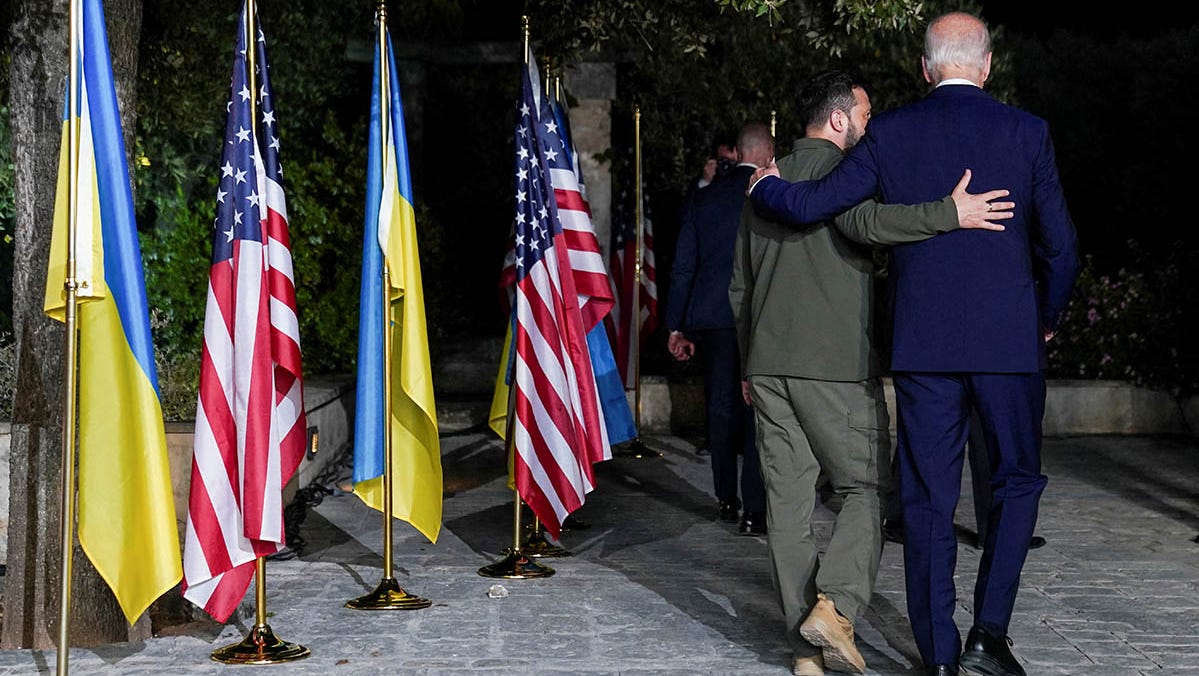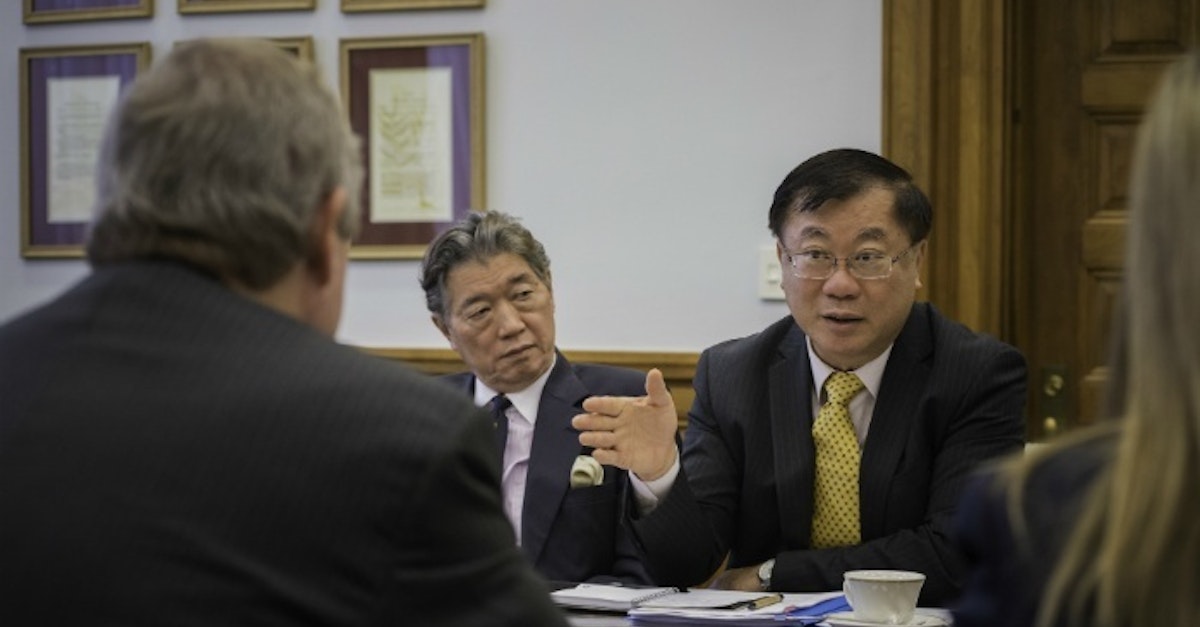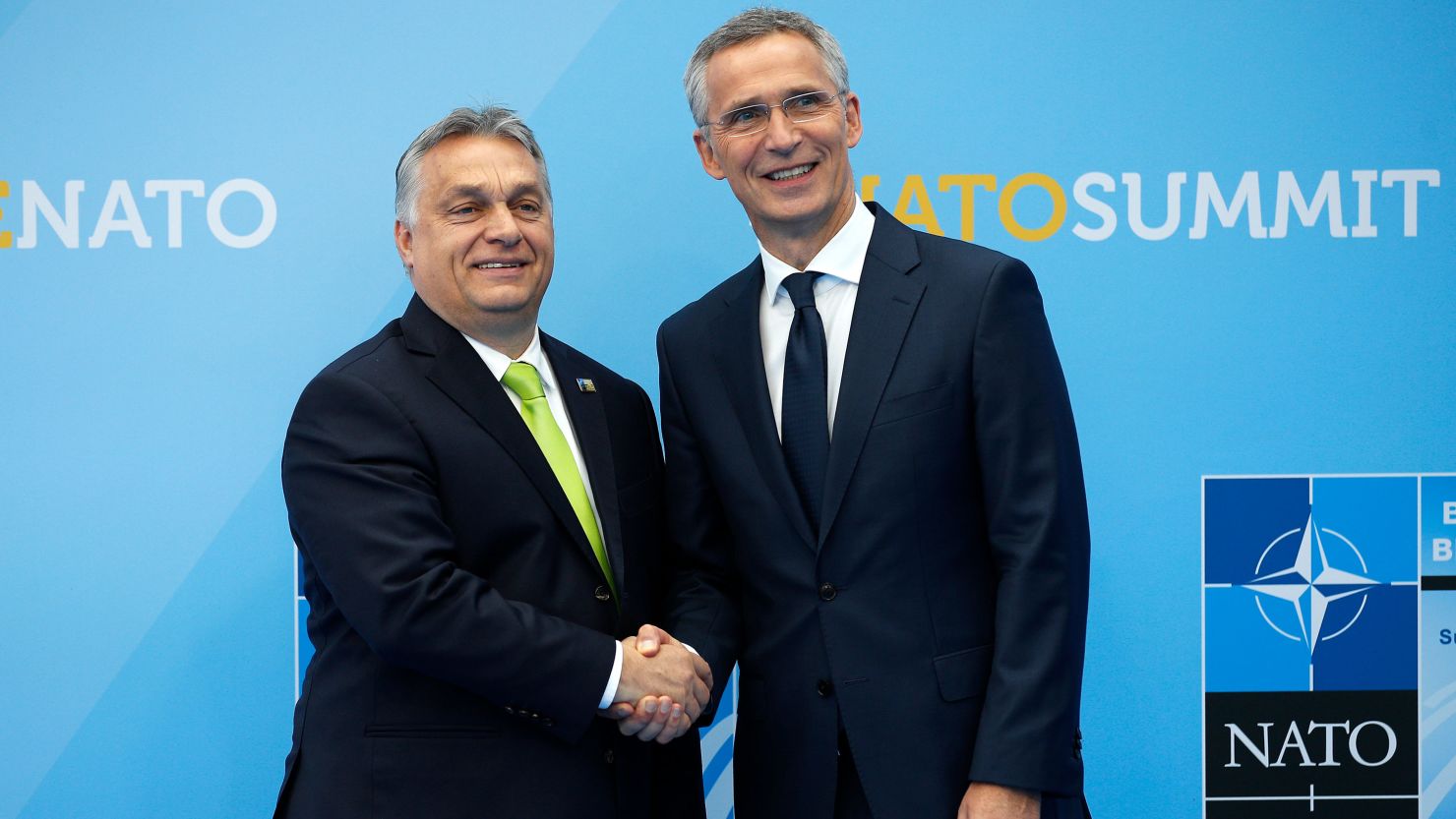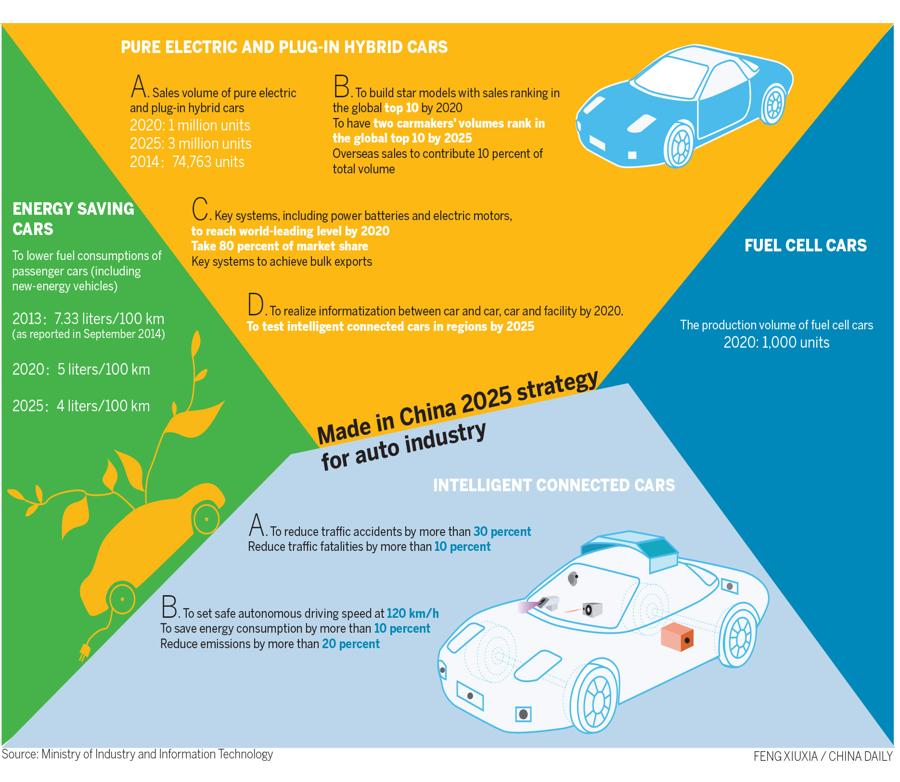Will Ukraine Join NATO? Trump's View And Its Geopolitical Significance

Table of Contents
Donald Trump's Opposition to Ukraine's NATO Membership
Donald Trump consistently expressed skepticism, bordering on outright opposition, towards Ukraine joining NATO. His arguments stemmed from a complex interplay of perceived financial burdens, doubts about Ukraine's military readiness, and a prioritization of domestic concerns over foreign entanglements. His administration's actions, often at odds with traditional allies, reflected this skepticism.
Trump's stated reasons for opposing Ukraine's NATO bid often revolved around the concept of burden-sharing. He frequently criticized NATO allies for not contributing their "fair share" to the alliance's collective defense. This argument, while not explicitly directed solely at Ukraine's potential membership, implicitly suggested that adding another potentially resource-constrained nation would exacerbate this issue. He also questioned Ukraine's military capabilities and preparedness, suggesting that the country wasn't ready for the rigorous demands of NATO membership.
- Criticism of NATO's financial obligations: Trump repeatedly voiced concerns about the financial commitments required of NATO members, often implying that Ukraine's inclusion would increase the financial strain on the United States.
- Doubt regarding Ukraine's readiness for NATO membership: He publicly questioned Ukraine's capacity to meet NATO's military standards and contribute effectively to collective defense.
- Potential conflicts of interest or personal motivations: While unsubstantiated, some analysts suggested that Trump's stance might have been influenced by his business interests or relationships with individuals involved in the region. This remains a contentious and largely unproven aspect of his opposition.
The consistency of Trump's stance fluctuated throughout his presidency. While initially expressing reservations, his outright opposition became more pronounced as the Ukraine conflict intensified. This wavering stance highlights the complexities of his foreign policy approach and its potential inconsistencies.
Geopolitical Implications of Ukraine's NATO Aspiration
Ukraine's aspiration to join NATO carries profound geopolitical implications, offering both potential benefits and significant risks. For Ukraine, membership would offer enhanced security guarantees, acting as a powerful deterrent against further Russian aggression. It would also facilitate closer economic integration with Western Europe and potentially lead to increased foreign investment.
However, the path to NATO membership is fraught with challenges. The most significant risk is the potential for escalating tensions with Russia, which views NATO expansion as a direct threat to its own security interests. This could lead to further military conflict, potentially involving NATO forces directly. Internally, Ukraine's NATO bid has faced political opposition, highlighting existing divisions within the country.
- Impact on the Russia-NATO relationship: Ukraine's accession would severely strain relations between Russia and NATO, potentially leading to increased military posturing and heightened risks of accidental conflict.
- Potential for increased military spending in Europe: The heightened security concerns resulting from Ukraine's potential NATO membership could trigger a significant increase in military spending across Europe.
- Effect on the global distribution of power: Ukraine's accession could shift the global balance of power, potentially strengthening NATO and weakening Russia's influence in the region.
- Influence on other countries considering NATO membership: The outcome of Ukraine's application will send a strong signal to other countries considering seeking NATO membership, impacting regional stability and alliances.
Russia's Response to Ukraine's NATO Bid
Russia has consistently viewed Ukraine's NATO aspirations with deep hostility. This opposition is rooted in Russia's historical ties with Ukraine and its perception of NATO expansion as a direct threat to its national security. Russia's response has ranged from diplomatic pressure and economic sanctions to military deployments near the Ukrainian border and the annexation of Crimea.
- Russian military deployments near the Ukrainian border: Russia has repeatedly increased its military presence near the Ukrainian border, demonstrating its willingness to use force to deter Ukraine's westward integration.
- Statements from Russian officials regarding Ukraine's NATO ambitions: Russian officials have consistently condemned Ukraine's NATO aspirations, portraying them as a direct threat to Russia's security.
- Economic sanctions and retaliatory measures: Russia has used economic sanctions and other retaliatory measures to pressure Ukraine and dissuade it from pursuing closer ties with NATO.
Alternative Perspectives and Future Scenarios
While Trump's administration opposed Ukraine's NATO membership, other perspectives exist. The Biden administration, along with many European allies, has expressed support for Ukraine's aspirations, albeit with cautious consideration of the potential risks. These supporters emphasize the importance of bolstering Ukraine's security and deterring further Russian aggression.
Several scenarios regarding Ukraine's future are plausible:
-
Ukraine joining NATO in the near future: This scenario remains uncertain due to the ongoing conflict and Russia's opposition. However, continued support from Western allies could make this a possibility in the long term.
-
Ukraine remaining neutral or pursuing a different security partnership: Ukraine might choose to remain neutral, focusing on bilateral agreements with individual countries rather than seeking NATO membership.
-
Continued stalemate and escalating tensions: The ongoing conflict could continue indefinitely, with no clear resolution in sight.
-
Arguments for and against Ukraine's NATO membership: Proponents highlight security guarantees and economic benefits, while opponents emphasize the risk of escalation with Russia.
-
Predictions by geopolitical analysts and experts: Analysts offer varied predictions, depending on factors like the conflict's trajectory and the West's response.
-
Potential timelines for Ukraine's NATO accession: A clear timeline is impossible to predict, with many factors influencing the decision.
Conclusion
Donald Trump's opposition to Ukraine's NATO membership significantly impacted the geopolitical landscape, adding complexity to an already volatile situation. While his concerns about burden-sharing and Ukraine's military readiness resonated with some, his stance ultimately disregarded the strategic benefits of deterring Russian aggression and strengthening transatlantic unity. The future of Ukraine's NATO aspirations remains uncertain, contingent upon the evolution of the conflict, the stance of Western allies, and Russia's response. Further research into the nuances of Ukraine NATO membership is crucial to understanding this evolving geopolitical crisis and forming well-informed opinions. Consider the long-term implications of different outcomes in this critical geopolitical issue – your informed perspective matters.

Featured Posts
-
 5 Dos And Don Ts Succeeding In The Private Credit Job Market
Apr 26, 2025
5 Dos And Don Ts Succeeding In The Private Credit Job Market
Apr 26, 2025 -
 Trump Casts Doubt On Ukraines Nato Bid Examining The Statement
Apr 26, 2025
Trump Casts Doubt On Ukraines Nato Bid Examining The Statement
Apr 26, 2025 -
 Ahmed Hassanein Poised To Make Nfl Draft History As Egypts First
Apr 26, 2025
Ahmed Hassanein Poised To Make Nfl Draft History As Egypts First
Apr 26, 2025 -
 China Made Vehicles The Future Of The Automotive Industry
Apr 26, 2025
China Made Vehicles The Future Of The Automotive Industry
Apr 26, 2025 -
 Wga And Sag Aftra Strike A Complete Shutdown Of Hollywood
Apr 26, 2025
Wga And Sag Aftra Strike A Complete Shutdown Of Hollywood
Apr 26, 2025
